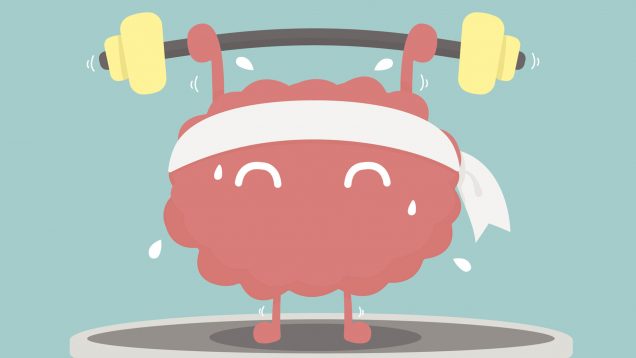Our Brain on Exercise

A large amount of research has demonstrated the power of exercise to support cognitive function, the effects of which can last for considerable time. An emerging line of scientific evidence indicates that the effects of exercise are longer lasting than previously thought – to the extent in which future generations can inherit these effects. The action of exercise on epigenetic regulation of gene expression appears central to building an “epigenetic memory” to influence long-term brain function and behavior. There have been new developments in the epigenetic field connecting exercise with changes in cognitive function, including DNA methylation, histone modifications, and microRNAs (miRNAs). The understanding of how exercise promotes positive long-term cognitive effects is crucial for directing the power of exercise to combat the issue of neurological and psychiatric disorders.
The positive effect of exercise on learning and memory in humans and animals has received abundant support. In older adults, exercise has been shown to improve cognitive performance and counteract the mental decline associated with aging, and these effects have been associated with modifications in hippocampal size. In one study, 21 women between the ages of 67 and 81 participated in exercise for 80 minutes per day. After 24 weeks, their hippocampal volume increased. In children, exercise has been found to be associated with cognitive performance: children who engaged in greater amounts of aerobic exercise generally performed better on verbal, perceptual, and mathematical tests. Recently, a meta-analysis study reported that a single bout of moderate aerobic exercise improves inhibitory control, cognitive flexibility, and working memory in preadolescent children and in older adults, indicating that beyond the well-known effects of long-term exercise on the brain, acute exercise also can be used as a tool for situations demanding high executive control. Interestingly, a single session of both aerobic and resistance exercise has been found to enhance memory consolidation in rats.
Epigenetic research has been centered on the analysis of changes on top of the genome that do not involve alterations in the nucleotide sequence. The two most studied epigenetic mechanisms are covalent modifications of DNA (methylation) or of histone proteins (i.e. acetylation and methylation), and their resulting effects on altering gene expression. The phosphorylation and methylation of histones are also tightly associated with regulation of learning and memory.
In agreement with its role in cognition, physical exercise can coordinate the action of genes involved in synaptic plasticity with resulting effects on memory preservation. For example, while exercise enhances the expression of genes (i.e. Bdnf, igf-1 and creb) that positively regulate memory consolidation, it downregulates genes (i.e. PP1and calcineurin) with a repressive role in these events. Evidence shows that DNA methylation is an important mechanism by which exercise affects gene expression. It is known that exercise differentially modulates the methylation pattern of specific CpG islands located at Bdnf gene, decreases hippocampal expression of DNMTs, attenuates the global methylation changes induced by stress, and increases Bdnf transcription through demethylation of its promoter IV.
It has been shown that the acetylation of histone proteins is a requisite for long term memory . For example, intrahippocampal injection of global HDAC inhibitors enhances long term potentiation. The pro-cognitive function of HDAC is partially attributed to their ability to increase histone acetylation. Interestingly, a previous study has shown that, like HDAC, physical exercise has the ability to transform a learning event that does not normally lead to a stable memory trace into a long-lasting form of memory (Intlekofer et al, 2013). Additionally, it was found that physical exercise increases histone acetylation and reduces HDAC expression and neural activity in the hippocampus.
In a recent study, Zhong et al. (2016) observed that exercise-induced memory improvements were associated with enhanced expression of cAMP response element-binding protein (CREB)-binding protein (CBP) in the hippocampus. Mechanistically, the recruitment of CBP triggers histone acetylation and the formation of a transcriptional complex at the promoters of many CREB-target genes to activate transcription. CBP mutant mice exhibit profound deficits in synaptic plasticity and LTM. Altogether, the aforementioned findings raise the idea that physical exercise promotes synaptic plasticity and memory improvements by altering the balance of HDAC enzymatic activity to favor a permissive state of chromatin, leading to the transcriptional activation of a myriad of genes with preponderant roles in cognition.
College students are known for being arguably the unhealthiest kind of humans. Between studying and managing social lives, exercise and self-care can be neglected despite their obvious importance. Sadly, this neglect might be prohibiting us from performing at our best as students. So, let me ask you this: how are you going to exercise today?
Writer: Kawtar Bennani
Editor: Nathaniel Meshberg
Sources:
https://www.nature.com/articles/npp2013104
https://www.sciencedirect.com/science/article/abs/pii/S0306452215011422